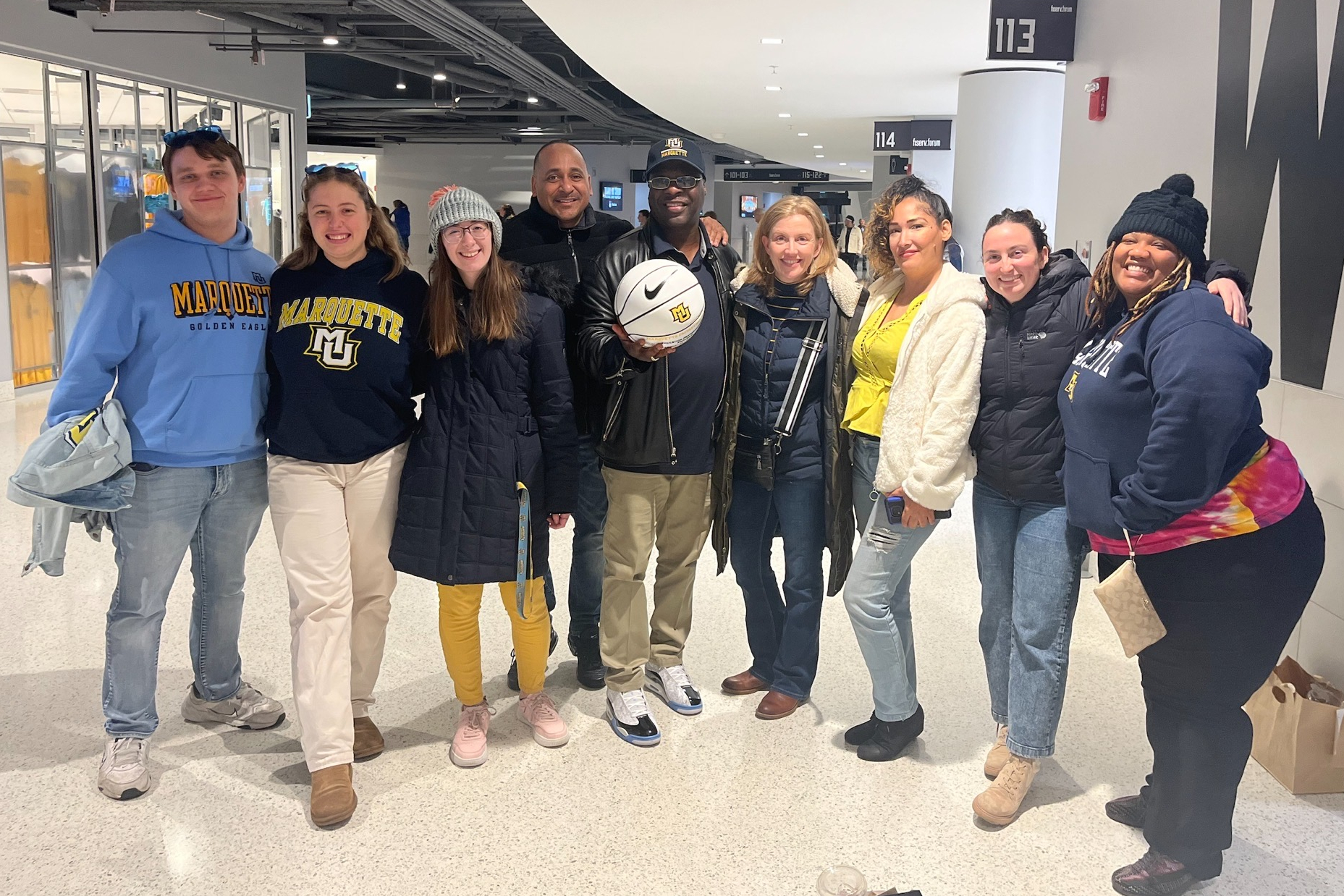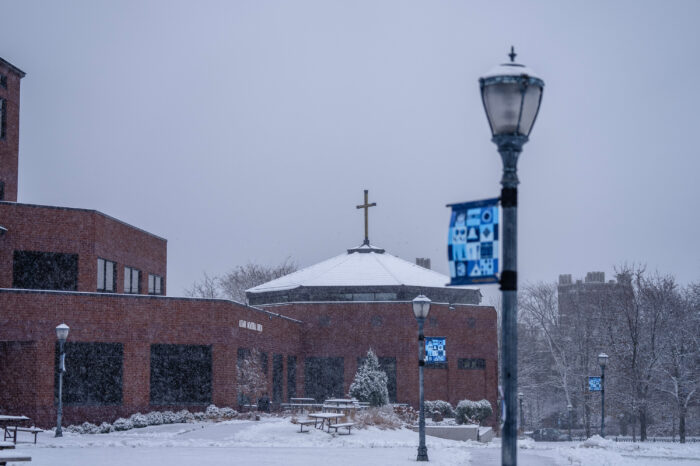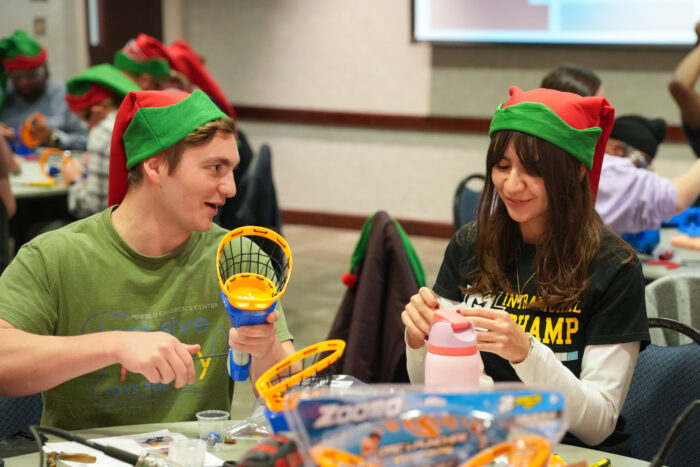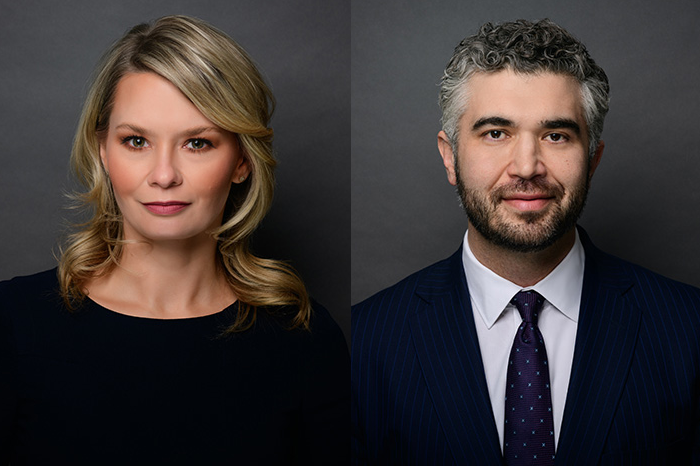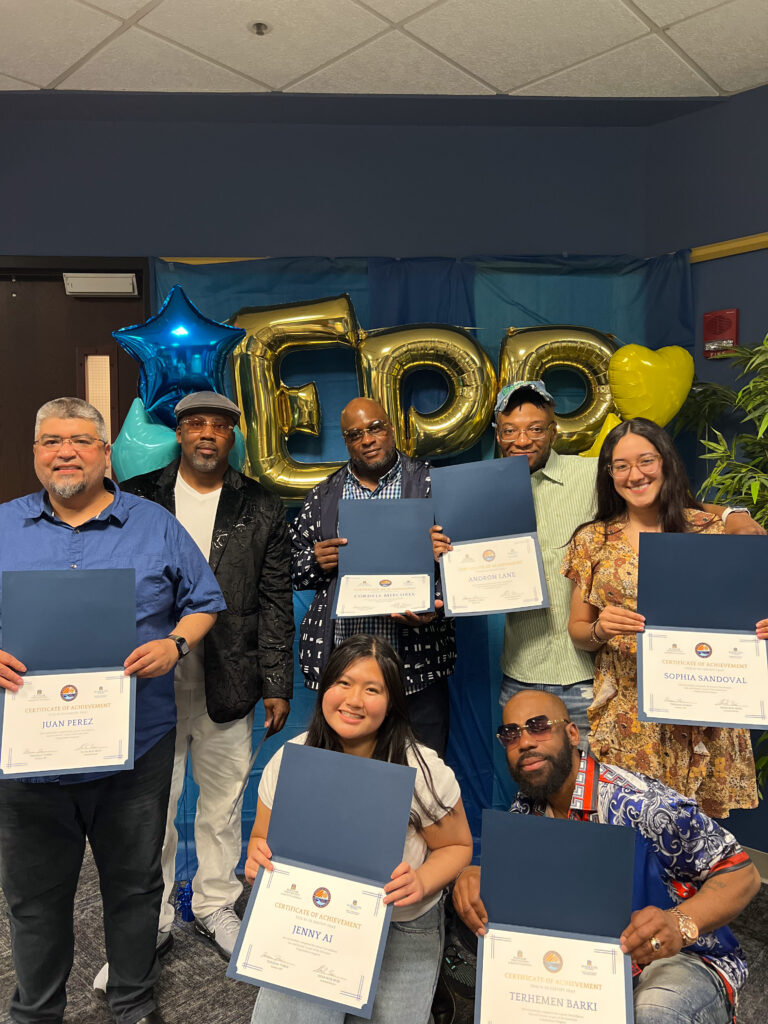
Marquette University President Michael R. Lovell announced today that the Mellon Foundation has given $1.25 million to the university to extend its successful prison initiatives programs. The programs create pathways to higher education for people impacted by incarceration across southeast Wisconsin.
“This important gift will continue to help us expand the traditional boundaries of higher education and transform lives,” President Michael R. Lovell said. “Incarcerated individuals deserve opportunities to make a difference in society.”
Marquette’s Center for Urban Research, Teaching and Outreach (CURTO) and Education Preparedness Program (EPP) team with the McNeely Prison Education Consortium work to create pathways for higher education for people impacted by incarceration.
The EPP, led by program director Dr. Theresa Tobin, serves as the point of first contact for this student population. Tobin and her team work with currently and formerly incarcerated (justice-impacted) students to build or add to an existing transcript, demystify the college experience and prepare this student population to continue their education.
The McNeely Prison Education Consortium, led by Dr. Darren Wheelock, operates the degree pathway. Marquette serves as the hub of a consortium of colleges and universities that take part in the program that includes Alverno College, Mount Mary University, Milwaukee School of Engineering, UW-Madison’s Prison Education Initiative and Milwaukee Area Technical College. Tobin and Wheelock are the co-principal investigators for this grant.
Since their inception, the EPP and McNeely Prison Education Consortium have pursued their vision with financial support from the Mellon Foundation, the U.S. Department of Education and private faith-based funding agencies. The program strives to create a prison-to-school pipeline, while also providing a broader support network across Milwaukee. Thus far, the program has served 422 students — half are incarcerated or formerly incarcerated and half are Marquette undergraduate students who benefit from the unique experiential-learning opportunity.
A model of collaboration
The now highly successful EPP was rooted in the classroom and inspired by two Marquette philosophy faculty members and two graduate students. In 2015, they began developing an idea to create a philosophy class that blended a mix of college students and currently incarcerated women, taught at the Milwaukee Women’s Correctional Center.
They received an internal Marquette University grant to begin teaching the course in 2015. At the same time, CURTO was working with Marquette alumnus, community leader and advocate for the incarcerated, R.L. McNeely, to collaborate with local colleges and universities to establish a prison-to-college pipeline.
A 2021 joint report by the Brookings Institution and the American Enterprise Institute noted that more than 640,000 people return to their communities from prison each year. “Lack of institutional support as well as legal barriers, low wages and stigmas can make re-entry into society extremely challenging,” said Dr. Robert S. Smith, director of CURTO.
Philanthropy momentum continues
The gift from the Mellon Foundation adds to Marquette’s growing fundraising momentum. More than 71,000 donors have contributed to Time to Rise with 53% of these donors making their first-ever gift to Marquette. The university is continuing to drive campaign fundraising through June 30, 2024.
“Our Time to Rise campaign has reached every corner of our campus and significantly impacted faculty, staff, students as well as alumni, parents and friends,” said Vice President for University Advancement Tim McMahon. “Thanks to this new gift from the Mellon Foundation, we are excited to advance and grow on their initial investment to further develop the transformative EPP program that epitomizes our Catholic, Jesuit mission.”
